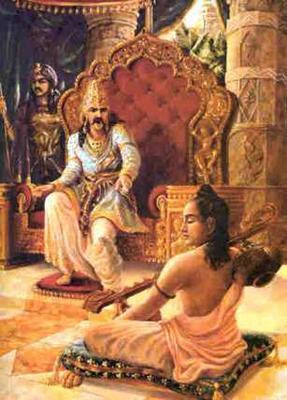Diwali ceremony can be observed in the temple by illuminating 100's of candles, in different parts of the temple, and offering special Prasad to the Deity. This ceremony was observed by the inhabitants of Ayodhya, the Kingdom of Lord Ramacandra, while Lord Ramacandra was out of His Kingdom due to His 14 years banishment by the order of His father. His younger step-brother Bharata, took charge of the Kingdom and the day on which Lord Ramacandra took back the charge again from His brother, and seated on the throne, this is observed as Diwali function. This is the original idea of Diwali, and Dipabali.Dipabali means the same thing—Dipa means candles, and bali means numerous. When numerous candles are lighted it is called Dipabali.
Letter to: Hamsaduta — Seattle 10 October, 1968















